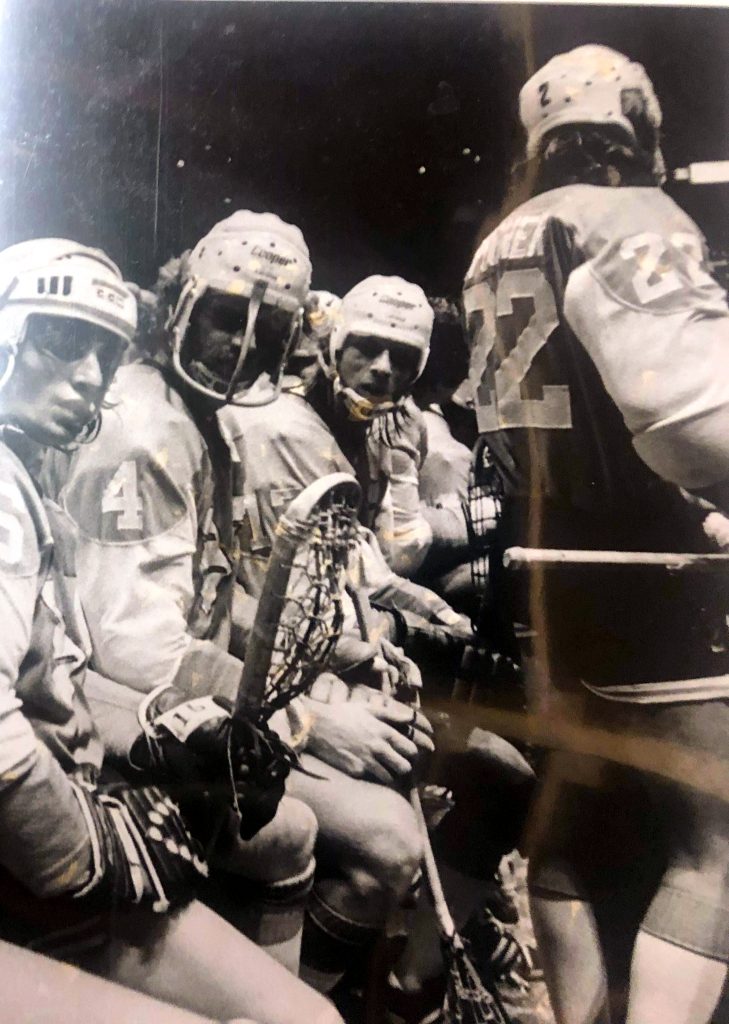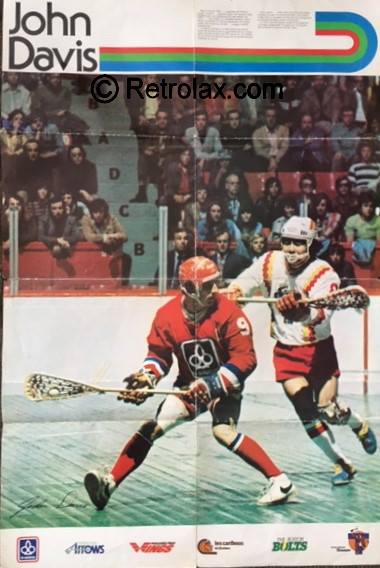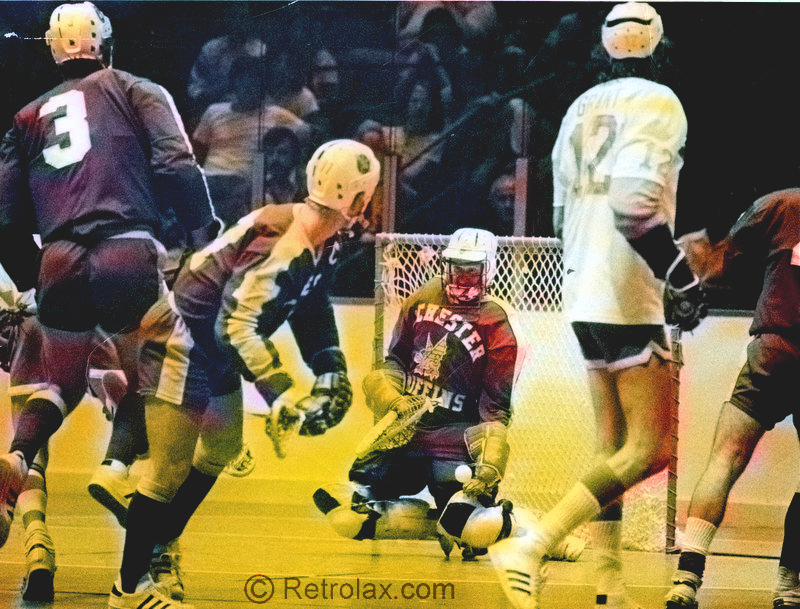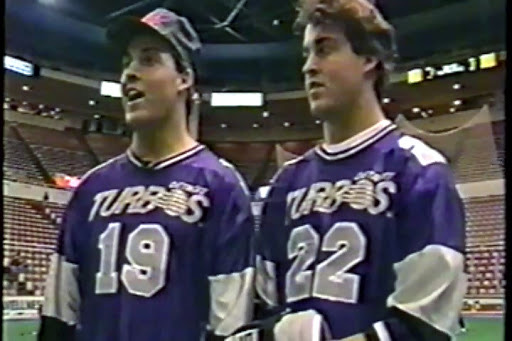By Dick Weiss, Philadelphia Daily News: February 14th, 1976
Pictures courtesy of the Larry Lloyd Collection
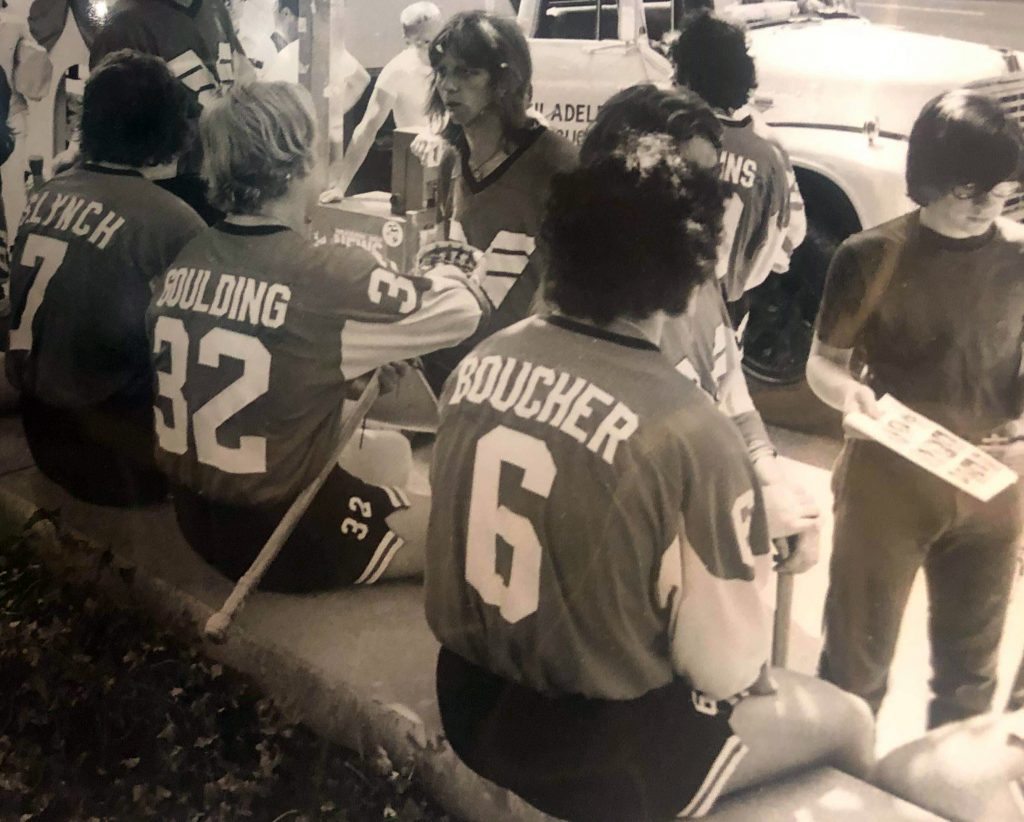
Bobby Allan, who quit a teaching job he had held in the Peterborough, Ontario, school system for 18 years to become coach of the Wings pro lacrosse team last October, started a short vacation in Alberta yesterday when he first heard about a death in the pro sports world.
The infant National Lacrosse League—of which the Wings were charter members two years ago—had just folded after an emergency owners’ meeting in Montreal.
“Bobby phoned me about 5:30, told me he had heard it over the radio out there,” said team general manager Ken Wood late last night. “Some way to start a holiday.”
ALLAN WILL HAVE PLENTY of time off now. So will some 50 other members of an organization that had worked hard to make itself a legitimate attraction in an area already saturated with professional sports experiments. Unfortunately, when the plug was finally pulled, no one bothered to officially inform the players, most of whom are scattered throughout Canada.
“We sent telegrams,” Wood claimed. “I wanted them to hear from me first.”
There must have been a communications breakdown. “I pulled up roots in Canada to come down here, start a new life,” said Wings’ goalie Wayne Platt from his Delaware County home. “Now, to have it all shot from under me, I feel ready to cry. I’m sitting here watching the Flyers, trying to rehash everything that happened. You tell me the league has folded, it’s hard to believe, it’s hard to accept.”
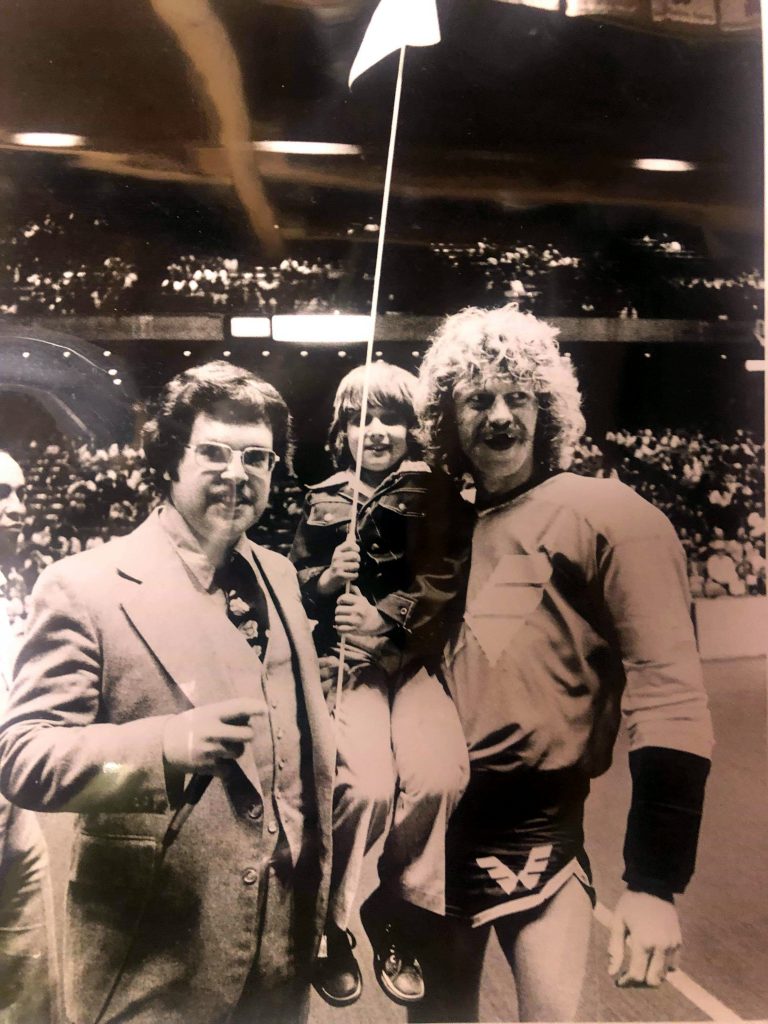
Both Platt and team captain Carm Collins had stayed in the Philadelphia area this winter, just to promote the sport. “I sat around the office most of the day, waiting by the phone,” said Collins from his South Jersey apartment.
“By the time I left, we still hadn’t received word. Just as I walked in the door of my apartment, I got a call from my sister in Peterborough. She told me.”
Actually, by yesterday, the fate of National Lacrosse League had already been decided by certain powerful league executives. The sad truth is, the Daily News has learned, that the Wings—who along with the Maryland Arrows were the only two solvent franchises in the league—had already been written off permanently.
FOR THE PAST TWO DAYS, office secretaries had been typing out refund checks to send to 2,300 fans who had put initial deposits down on season tickets .And, if that wasn’t bad enough, the team had made arrangements to sell its equipment to one of the private schools in the area.
And where was Wings’ owner F. Eugene Dixon Jr. while all this intrigue was going on? In Florida, of course, taking a mid-winter vacation, while Wings’ president Hunter McMullin took the final steps leading to the execution.
McMullin and the team’s legal advisor Peter Mattoon were both in Montreal yesterday to process the final paper work.
If one thing can be said in the Wings* defense—they tried to make the franchise go. “We always tried to go first class,” said Sy Roseman, one of the best PR men in the city. “I’ll never forget the time one of the owners of the Syracuse came to visit the Spectrum for one of our games. He told me—this isn’t a game. It’s a spectacle. He was really impressed.”
Unfortunately, not enough people in other cities felt that way. At the time of the demise, there were only two men— Dixon and Maryland’s board chairman Tristam C. Colket— could afford to subsidize franchises.
Dixon, the heir to the Widener fortune, has a net wealth estimated to be in the hundreds of millions of dollars. Colket, whose wealth stems from his connections with Campbell’s Soups, Altaire Airlines and Swanson’s Frozen Foods, has the same amount of money to experiment with.
LAST YEAR, Dixon was patient, while the Wings, who have an estimated $225,000 payroll, lost $1 million.
